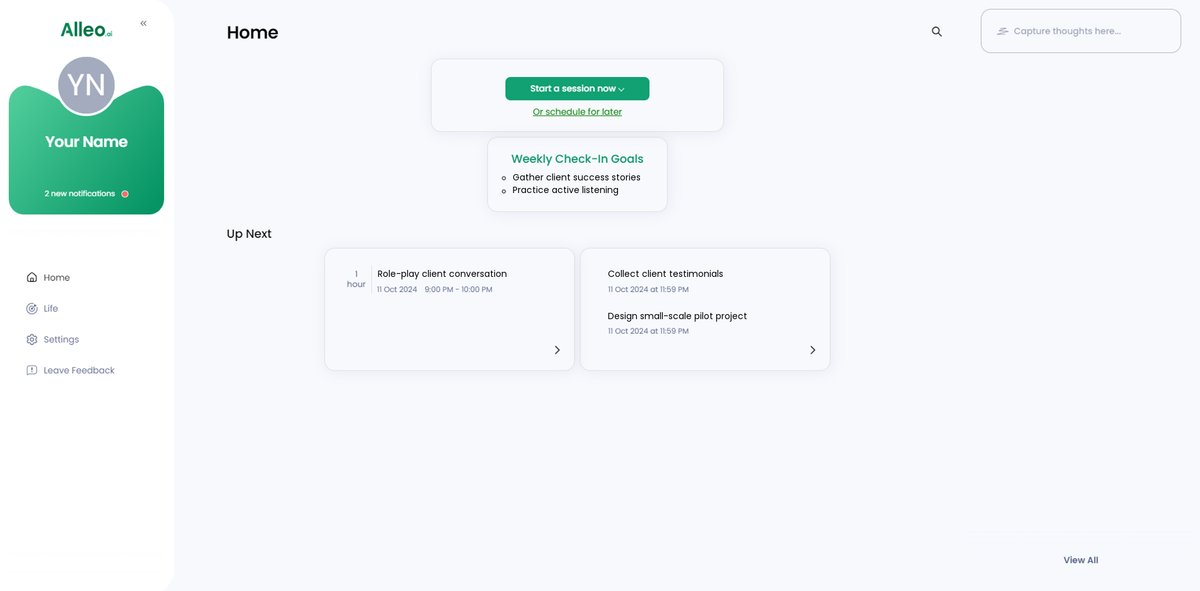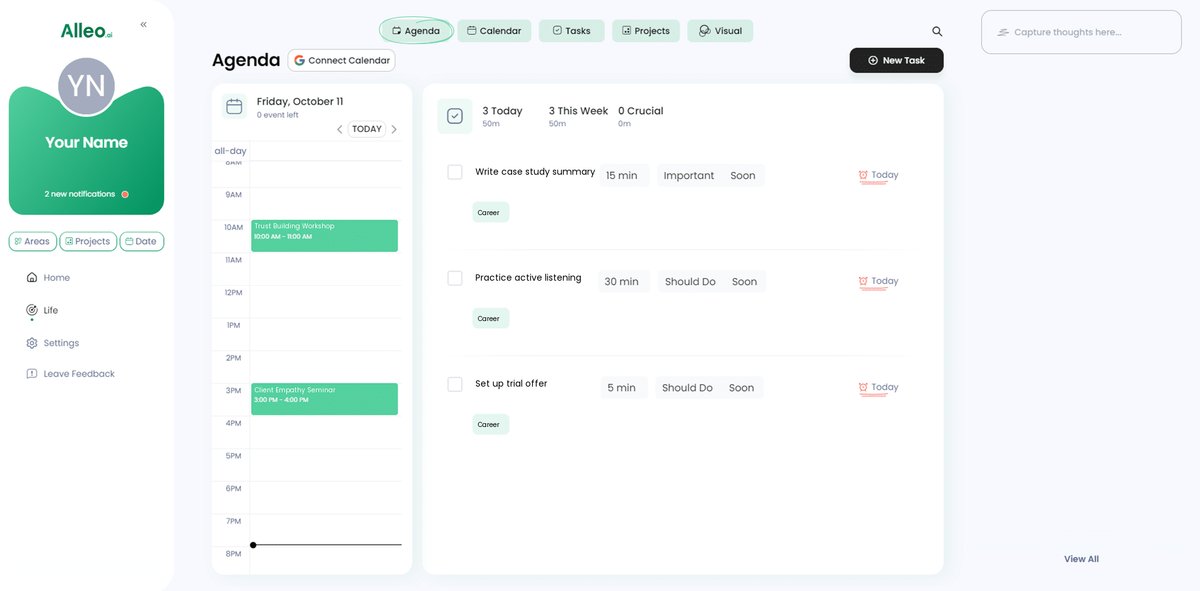How to Build Trust with Skeptical Clients: The Ultimate Sales Professional’s Guide
Building trust with skeptical clients can feel like gaining the trust of a wild animal—slow, methodical, and requiring patience. This process of building rapport in sales is crucial for overcoming client objections and establishing credibility.
As a life coach, I’ve helped many professionals navigate these challenges. I often encounter sales professionals struggling to build trust with skeptical clients and improve their client relationship management skills.
In this article, you’ll discover specific strategies to demonstrate expertise, practice active listening, and offer risk-free trials. These effective communication strategies for salespeople will help in addressing customer concerns and demonstrating product value.
Let’s dive into these sales trust-building exercises and transparency in sales techniques.

Understanding the Challenge of Building Trust
Navigating skepticism in sales can feel like a constant uphill battle. Many clients initially struggle with trust due to past experiences or misinformation. Building trust with skeptical clients is a crucial skill for sales professionals.
This cautiousness is often rooted in legitimate concerns. Overcoming client objections requires patience and understanding.
For sales professionals, building trust isn’t just important—it’s essential. Trust is the foundation of any successful client relationship, impacting long-term business success. Establishing credibility in sales is key to building rapport.
Without it, even the most promising deals can fall through.
In my experience, people often find that skeptical clients are the hardest to win over. They require more time, patience, and effort than others. Effective communication strategies for salespeople are crucial in these situations.
But addressing their concerns can lead to rewarding and loyal partnerships.
Sales professionals need to understand that skepticism can stem from various sources. It could be a previous negative experience or simply a natural disposition. Building trust with skeptical clients involves recognizing these sources.
Recognizing these sources is the first step in overcoming them.
Each interaction with a skeptical client is an opportunity to build trust. By focusing on their needs and providing clear, transparent information, you can slowly gain their confidence. Transparency in sales techniques is essential for addressing customer concerns.
It’s a gradual process but worth the effort.
Ultimately, building trust with skeptical clients is about consistency and reliability. Demonstrating your expertise and commitment can turn initial hesitance into a solid, trusting relationship. Demonstrating product value and using proof of concept in sales pitches can be effective trust-building exercises.

Effective Strategies for Building Trust with Skeptical Clients
Overcoming skepticism requires a few key steps. Here are the main areas to focus on to make progress in building trust with skeptical clients:
- Demonstrate expertise with relevant case studies: Share success stories that showcase your capabilities and build credibility, effectively demonstrating product value and establishing credibility in sales.
- Practice active listening and empathetic responses: Show clients you understand their concerns and are genuinely invested in their success, utilizing effective communication strategies for salespeople and addressing customer concerns.
- Offer risk-free trials or small-scale pilot projects: Allow clients to experience your product or service with minimal commitment, serving as a proof of concept in sales pitches and overcoming client objections.
Let’s dive in to these strategies for building rapport in sales and enhancing client relationship management!
1: Demonstrate expertise with relevant case studies
Demonstrating expertise with relevant case studies is crucial for building trust with skeptical clients and establishing credibility in sales.
Actionable Steps:
- Collect success stories: Gather detailed case studies from previous clients, focusing on similar industries or challenges. Highlight specific outcomes and benefits to demonstrate product value.
- Share strategically: Use these case studies in presentations, meetings, and follow-up emails. Tailor each case study to address the specific concerns of the skeptical client, aiding in overcoming client objections.
- Utilize testimonials: Incorporate testimonials from satisfied clients into your pitch. Highlight endorsements from reputable figures or organizations in your field to enhance transparency in sales techniques.
Explanation:
These steps matter because they provide tangible proof of your capabilities, which helps in building trust with skeptical clients. Sharing relevant case studies and testimonials builds credibility and reassures clients of your expertise, supporting effective communication strategies for salespeople.
According to Fiveable, using multiple types of proof, such as testimonials and case studies, enhances credibility and persuades skeptical customers.
Key benefits of using case studies:
- Provides real-world evidence of success
- Addresses specific client concerns
- Builds credibility and trust
By effectively demonstrating your expertise, you lay a solid foundation for trust, making it easier to progress to the next steps in client relationship management and building rapport in sales.

2: Practice active listening and empathetic responses
Practicing active listening and empathetic responses is essential for building trust with skeptical clients and effectively addressing their concerns.
Actionable Steps:
- Engage in role-playing exercises: Practice listening without interrupting by simulating client conversations with colleagues. Use techniques like paraphrasing and summarizing to show understanding, which are crucial for establishing credibility in sales.
- Acknowledge client feelings: Respond to clients by acknowledging their concerns genuinely. Use phrases like, “I understand why you might feel that way,” followed by factual information to address their worries, demonstrating effective communication strategies for salespeople.
- Use open-ended questions: Encourage clients to share more about their needs by asking questions like, “What specific challenges are you facing?” This approach helps gain deeper insights and is key to overcoming client objections.
Explanation:
These steps matter because they demonstrate that you are genuinely invested in understanding and addressing your client’s concerns, which is crucial for building rapport in sales.
According to InterviewAce, empathy and addressing the root of a client’s skepticism are crucial for building trust with skeptical clients.
By practicing active listening and empathy, you create a foundation of trust and show clients that their concerns are taken seriously, which is essential for client relationship management.
Transitioning to the next strategy helps solidify the trust-building process further in sales trust-building exercises.

3: Offer risk-free trials or small-scale pilot projects
Offering risk-free trials or small-scale pilot projects can be an effective way to alleviate client skepticism and build trust with skeptical clients.
Actionable Steps:
- Design a pilot project: Create a small-scale trial that lets clients experience your product or service with minimal commitment. Clearly define metrics for success to evaluate the trial’s effectiveness, which is crucial for building rapport in sales.
- Provide ongoing support: Assign a dedicated support team to assist the client throughout the trial period. Schedule regular check-ins to address any issues and gather feedback, demonstrating product value and overcoming client objections.
Explanation:
These steps matter because they allow clients to see the value of your offering firsthand, reducing their risk and building trust with skeptical clients through transparency in sales techniques.
According to FasterCapital, transparency and ongoing support are crucial in establishing credibility in sales with potential customers. This hands-on experience can help convert skeptics into long-term clients through effective communication strategies for salespeople.
Benefits of offering risk-free trials:
- Reduces perceived risk for clients
- Demonstrates confidence in your offering
- Provides tangible results to evaluate, serving as proof of concept in sales pitches
By implementing these strategies, you can create a solid foundation for a trusting relationship with your clients, addressing customer concerns and enhancing client relationship management.

Partner with Alleo to Build Trust with Skeptical Clients
We’ve explored the challenges of building trust with skeptical clients, how solving them can benefit your sales success, and the steps to achieve it. But did you know you can work directly with Alleo to make this journey of building rapport in sales easier and faster?
Alleo offers affordable, tailored coaching support to help you build trust with skeptical clients and overcome client objections. Setting up an account is simple.
Create a personalized plan that targets your specific challenges in establishing credibility in sales. Alleo’s AI coach provides full coaching sessions just like any human coach, focusing on effective communication strategies for salespeople.
The coach will follow up on your progress in client relationship management, handle changes, and keep you accountable via text and push notifications. You can start with a free 14-day trial, requiring no credit card, to begin addressing customer concerns and demonstrating product value.
Ready to get started for free and learn sales trust-building exercises? Let me show you how!
Step 1: Log In or Create Your Alleo Account
To start building trust with skeptical clients using Alleo’s AI coach, simply log in to your account or create a new one to begin your personalized coaching journey.

Step 2: Choose “Building better habits and routines”
Select “Building better habits and routines” to develop consistent practices that will help you demonstrate expertise, actively listen, and offer risk-free trials, ultimately building trust with skeptical clients more effectively.

Step 3: Select “Career” as Your Focus Area
Choose “Career” as your focus area to tackle trust-building challenges with skeptical clients head-on, aligning perfectly with the sales strategies discussed in the blog article and setting the foundation for improved client relationships and business success.

Step 4: Starting a Coaching Session
Begin your journey with Alleo by scheduling an intake session, where you’ll discuss your challenges in building trust with skeptical clients and create a personalized plan to overcome them.

Step 5: Viewing and Managing Goals After the Session
After your coaching session on building trust with skeptical clients, check the Alleo app’s home page to view and manage the specific goals you discussed, allowing you to track your progress and stay accountable in your trust-building journey.

Step 6: Adding events to your calendar or app
To track your progress in building trust with skeptical clients, use the calendar and task features in the Alleo app to schedule important follow-ups, set reminders for case study presentations, and log your active listening practice sessions.

Bringing It All Together: Building Trust with Skeptical Clients
As we wrap up, let’s reflect on the journey of building trust with skeptical clients. It’s a challenging but rewarding process that requires effective communication strategies for salespeople.
Remember, demonstrating expertise through case studies shows clients you mean business, helping in establishing credibility in sales. Practicing active listening and empathetic responses makes clients feel heard and valued, essential for building rapport in sales.
Offering risk-free trials gives them a chance to see your value firsthand, serving as proof of concept in sales pitches and demonstrating product value.
Empathy and patience are your best allies in overcoming client objections. Each step you take builds a stronger foundation for trust, crucial in client relationship management.
At Alleo, we understand these challenges in building trust with skeptical clients. We’re here to support you with personalized coaching and actionable strategies for addressing customer concerns.
Ready to start building trust with skeptical clients and achieving sales success? Try Alleo for free today and enhance your transparency in sales techniques!